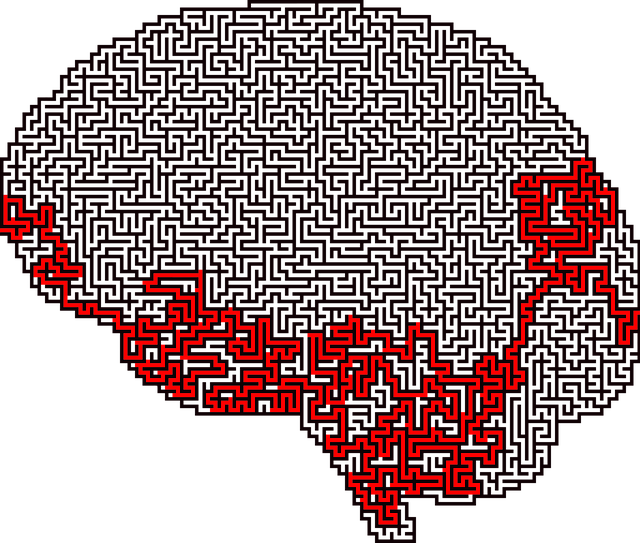Mental wellness self-assessment tools are vital for individuals in Lakewood, especially those in polyamorous or open relationships, to understand their psychological well-being. While general tools exist, they lack specificity for niche populations like polyamory. Lakewood Polyamorous and Open Relationships Therapy advocates for tailored assessments addressing unique relationship dynamics and challenges. These tools focus on cultural sensitivity, self-care routines, and inner strength, promoting mental health management and resilience. Effective self-assessment requires rigorous testing, user feedback, and integration of trauma support to cater to diverse needs beyond traditional categories.
Mental wellness self-assessment tools play a crucial role in empowering individuals to take charge of their mental health. This article explores the development of such tools, focusing on serving the unique needs of polyamorous and open relationships dynamics. We begin by understanding the significance of self-assessment in mental wellness and identifying the target audience. Then, we review existing resources, pinpointing gaps that our proposed framework aims to fill. Through a comprehensive approach, we discuss designing sensitive yet reliable questionnaires and highlight the importance of cultural competence during implementation and user feedback integration, with a special focus on Lakewood Polyamorous and Open Relationships Therapy.
- Understanding Mental Wellness Self-Assessment: Defining the Need and Target Audience
- Existing Tools and Gaps: A Review of Current Resources in the Market
- Developing a Comprehensive Framework: Incorporating Polyamorous and Open Relationships Dynamics
- Designing Effective Questionnaires: Balancing Sensitivity, Validity, and Reliability
- Implementation, Testing, and Feedback Loop: Ensuring Cultural Competence and User Engagement
Understanding Mental Wellness Self-Assessment: Defining the Need and Target Audience

Mental wellness self-assessment tools play a pivotal role in empowering individuals to take charge of their mental health. These assessments provide an initial glimpse into one’s psychological well-being, offering valuable insights for both personal growth and professional support. The need for such tools is increasingly recognized, especially within diverse communities like Lakewood, where polyamorous and open relationships are practiced. Here, individuals may face unique challenges related to identity, communication, and understanding boundaries, all of which can significantly impact mental wellness.
The target audience for these self-assessment tools extends beyond the polyamorous community, encompassing a broader spectrum of people seeking self-improvement and mental health management. By incorporating cultural sensitivity in mental healthcare practice, these assessments can be tailored to address the specific needs of diverse populations, fostering a sense of belonging and understanding. Encouraging self-care routine development for better mental health is another key aspect, as it equips individuals with strategies to maintain resilience and well-being. Additionally, focusing on inner strength development empowers people to navigate life’s challenges with enhanced coping mechanisms.
Existing Tools and Gaps: A Review of Current Resources in the Market

The landscape of mental wellness self-assessment tools is vast and diverse, catering to a wide array of needs. From standardized psychological assessments to mobile app-based platforms, numerous resources are available in the market. However, a critical review reveals gaps that demand attention, especially regarding niche populations such as those engaging in polyamorous and open relationships, like those supported by Lakewood Polyamorous and Open Relationships Therapy. While some tools address general mental health and emotional regulation, there is a scarcity of specialized assessments tailored to the unique dynamics and challenges faced by individuals within these relationship structures.
Burnout prevention strategies for healthcare providers, another critical area, are mostly addressed in generic forms without delving into the specific emotional healing processes required by professionals navigating complex interpersonal relationships. The absence of tools designed to support both individual emotional well-being and interpersonal dynamics highlights a significant gap that hinders comprehensive mental wellness assessments. This dearth of specialized resources underscores the need for innovative, contextually relevant self-assessment tools capable of addressing these specific challenges.
Developing a Comprehensive Framework: Incorporating Polyamorous and Open Relationships Dynamics

Developing a comprehensive framework for mental wellness self-assessment tools requires a nuanced approach, especially when considering the dynamics of polyamorous and open relationships. Traditional therapy models often overlook these unique relationship structures, leaving individuals in non-monogamous communities with limited access to tailored support. This gap highlights the need for inclusive mental health resources that reflect the diverse nature of modern relationships.
At Lakewood Polyamorous and Open Relationships Therapy, we believe in fostering an environment where all individuals can openly discuss their emotional connections without judgment. By integrating these dynamics into self-assessment tools, we aim to enhance Mental Health Education Programs Design and offer effective Stress Reduction Methods and Crisis Intervention Guidance. Such tools should encourage self-reflection on interpersonal dynamics, promote healthy communication, and provide resources for managing potential challenges within polyamorous or open relationships.
Designing Effective Questionnaires: Balancing Sensitivity, Validity, and Reliability

Designing effective questionnaires for mental wellness self-assessment requires a delicate balance between sensitivity, validity, and reliability. Questions should be crafted to accurately capture an individual’s emotional state, thought patterns, and coping mechanisms, while also maintaining confidentiality and avoiding potential triggers. This fine line is especially crucial when addressing sensitive topics like polyamorous and open relationships, as explored in Lakewood Polyamorous and Open Relationships Therapy.
For optimal results, the questionnaires should adhere to sound psychometric principles. Validity ensures that the questions accurately measure what they intend to, while reliability guarantees consistent outcomes over time. Incorporating Mind Over Matter principles and teaching effective Stress Reduction Methods can complement these assessments by empowering individuals to take charge of their mental wellness.
Implementation, Testing, and Feedback Loop: Ensuring Cultural Competence and User Engagement

The development of self-assessment tools for mental wellness must incorporate a robust implementation and testing phase to ensure their effectiveness and cultural competence. This process involves engaging with diverse communities, including those with unique relationship dynamics like polyamorous and open relationships, as practiced in Lakewood Polyamorous and Open Relationships Therapy. User engagement is vital; feedback from potential users helps refine the tools to better suit their needs.
Cultural sensitivity is a cornerstone of this phase. The self-assessment should consider the diverse cultural backgrounds and beliefs of users, ensuring it’s inclusive and avoids perpetuating stereotypes or biases. Additionally, integrating trauma support services and resilience-building elements can cater to individuals with historical or ongoing traumatic experiences, as many mental health challenges stem from such circumstances. This feedback loop allows for continuous improvement, making the tools more accessible and beneficial for a broader range of users, including those who might fall outside traditional mental health categories.
The development of a mental wellness self-assessment tool tailored for polyamorous and open relationships is both timely and necessary, addressing critical gaps in current resources. By incorporating nuanced dynamics specific to these communities, we can ensure more inclusive and effective support. Through a comprehensive framework, sensitive questionnaire design, and an iterative feedback loop that respects cultural competence, we aim to create a valuable resource akin to Lakewood Polyamorous and Open Relationships Therapy—one that empowers individuals to better understand their mental wellness and navigate their unique relationships with confidence and care.














